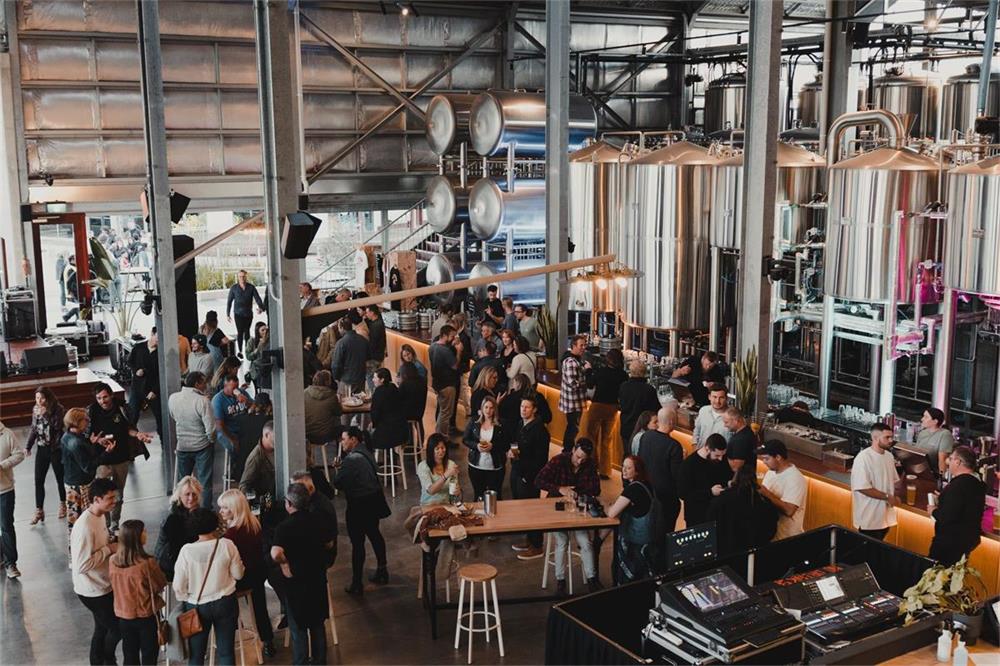How to successfully perform Microbrewery Setup
Starting a microbrewery is an exciting journey filled with creativity, community, and, of course, crafting great beer. Whether you’re a passionate homebrewer ready to take the next step or an entrepreneur entering the booming craft beer industry, this guide will walk you through the essentials of a microbrewery setup. From business plans to brewing equipment, let’s dive into the nitty-gritty of starting a successful microbrewery.
Overview of Microbrewery Setup
A microbrewery is a small-scale brewery that focuses on producing limited quantities of craft beer. Unlike large-scale breweries, microbreweries emphasize quality, flavor, and unique brewing techniques. Starting a microbrewery involves various aspects, including market research, obtaining licenses, purchasing equipment, and crafting a brand that resonates with your audience.
Here’s what you’ll learn:
- How to establish a successful microbrewery.
- Steps to create a robust business plan.
- Licensing, permits, and regulations.
- Equipment and space requirements.
- Key ingredients and supply chain management.
- Brewing processes, quality control, and marketing strategies.
By the end of this guide, you’ll have a clear roadmap for setting up a microbrewery that not only brews great beer but also thrives as a business.
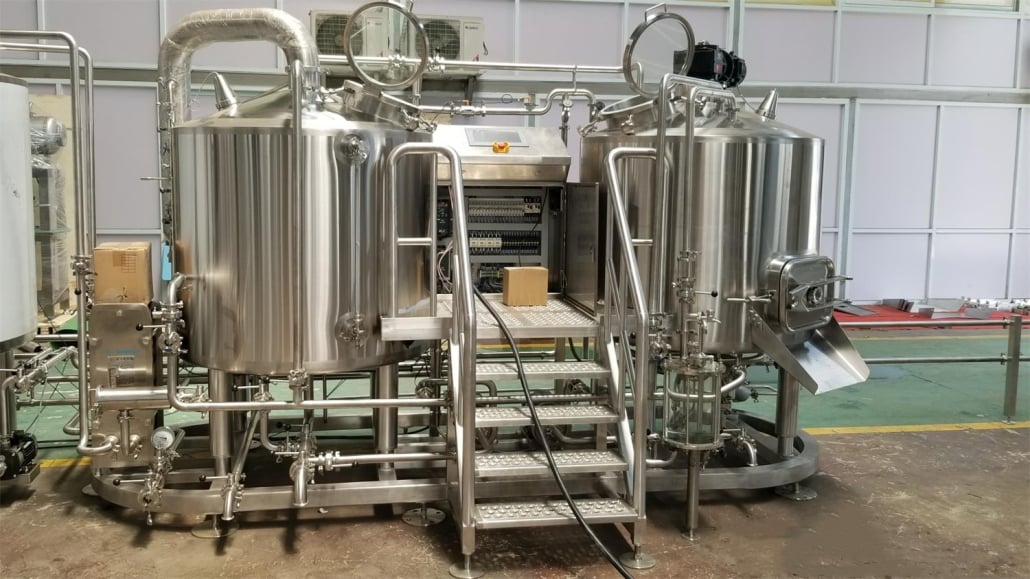
What Is a Microbrewery?
Microbreweries are small-scale, independent breweries producing limited quantities of beer, typically under a certain volume (e.g., 15,000 barrels annually in the U.S.). What sets microbreweries apart is their dedication to craftsmanship. They often experiment with ingredients and styles to create unique flavors, catering to local or niche markets. With the rising popularity of craft beer, microbreweries have become community hubs where people gather to enjoy fresh, innovative brews.
Starting a microbrewery is not just about brewing beer; it’s about creating an experience and a brand that people love. Let’s explore how to bring your vision to life.
How to Efficiently Establish a Successful Microbrewery
Establishing a microbrewery involves several strategic steps. Here’s a breakdown:
- Develop a Vision: What’s your brewery’s unique selling point? Is it innovative flavors, local sourcing, or a community focus?
- Secure Funding: Calculate your startup costs, which can range from $250,000 to $2 million depending on size and location. Consider loans, investors, or crowdfunding.
- Find the Right Location: Look for a space with high foot traffic, adequate utilities, and room for expansion.
- Obtain Licenses and Permits: Brewing is a highly regulated industry. You’ll need federal, state, and local permits.
- Purchase Equipment: Invest in high-quality brewing equipment suitable for your production scale.
- Hire a Skilled Team: From brewers to marketers, building a knowledgeable team is key.
- Craft Your Brand: Your logo, packaging, and marketing should reflect your brewery’s identity.
- Start Small, Scale Smart: Begin with limited production, gauge demand, and scale up gradually.
Market Research & Business Plan for Microbrewery Setup
Creating a solid foundation for your microbrewery starts with market research and a comprehensive business plan.
Market Research
- Understand Your Audience: Who are your potential customers? Craft beer enthusiasts, local residents, or tourists?
- Analyze Competition: Visit other breweries, study their offerings, and identify gaps in the market.
- Trends: Stay updated on industry trends like low-alcohol beers, sustainability, and unique flavor profiles.
Business Plan
A business plan is your blueprint for success. It should include:
- Executive Summary: Brief overview of your microbrewery.
- Mission and Vision: What’s your purpose and long-term goal?
- Market Analysis: Insights from your research.
- Operational Plan: Details on production, staffing, and logistics.
- Financial Plan: Projected costs, revenue, and breakeven analysis.
- Marketing Strategy: How you’ll promote your brewery and attract customers.
Licensing and Permits for Microbrewery Setup
Licensing is a crucial step. Here’s an overview of common permits required:
| License/Permit | Details |
|---|---|
| Federal Brewer’s Permit | Issued by the Alcohol and Tobacco Tax and Trade Bureau (TTB). |
| State Alcohol License | Varies by state; regulates production and distribution. |
| Local Business License | Required to operate within a specific city or county. |
| Health and Safety Permits | Ensures compliance with food and beverage safety standards. |
| Environmental Permits | Covers waste disposal and emissions regulations. |
Ensure you consult legal experts to navigate this process smoothly.
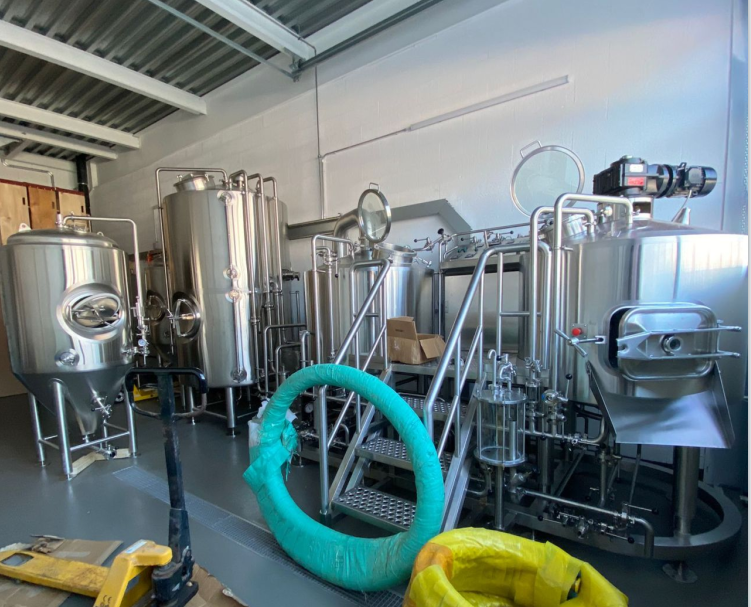

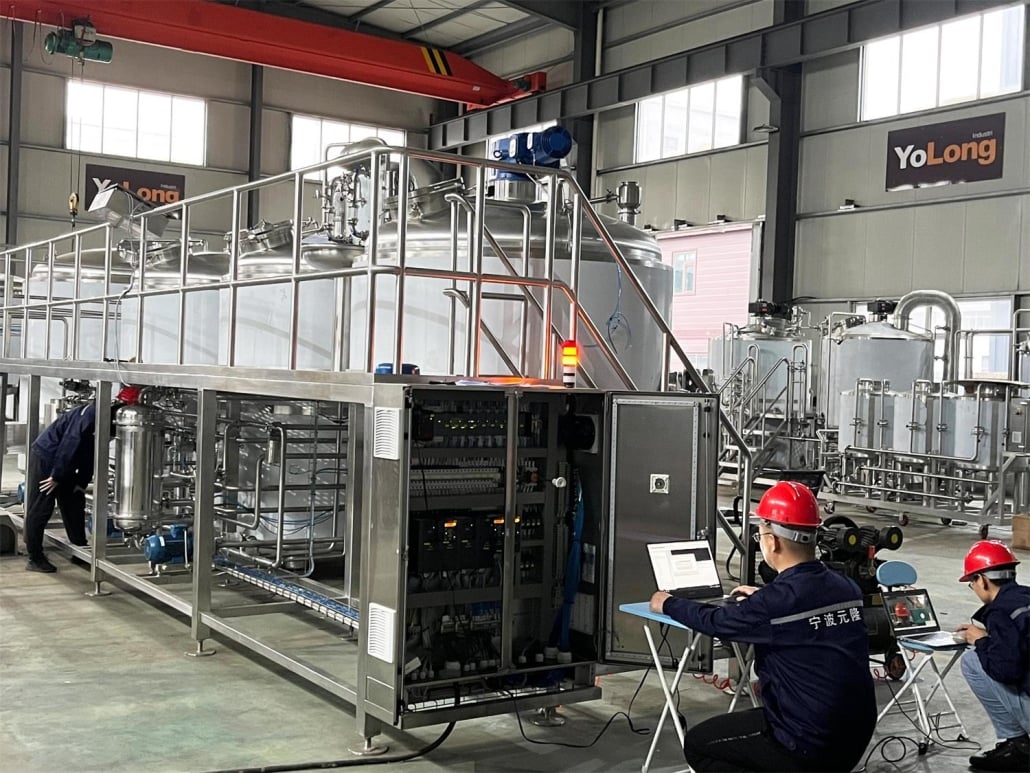
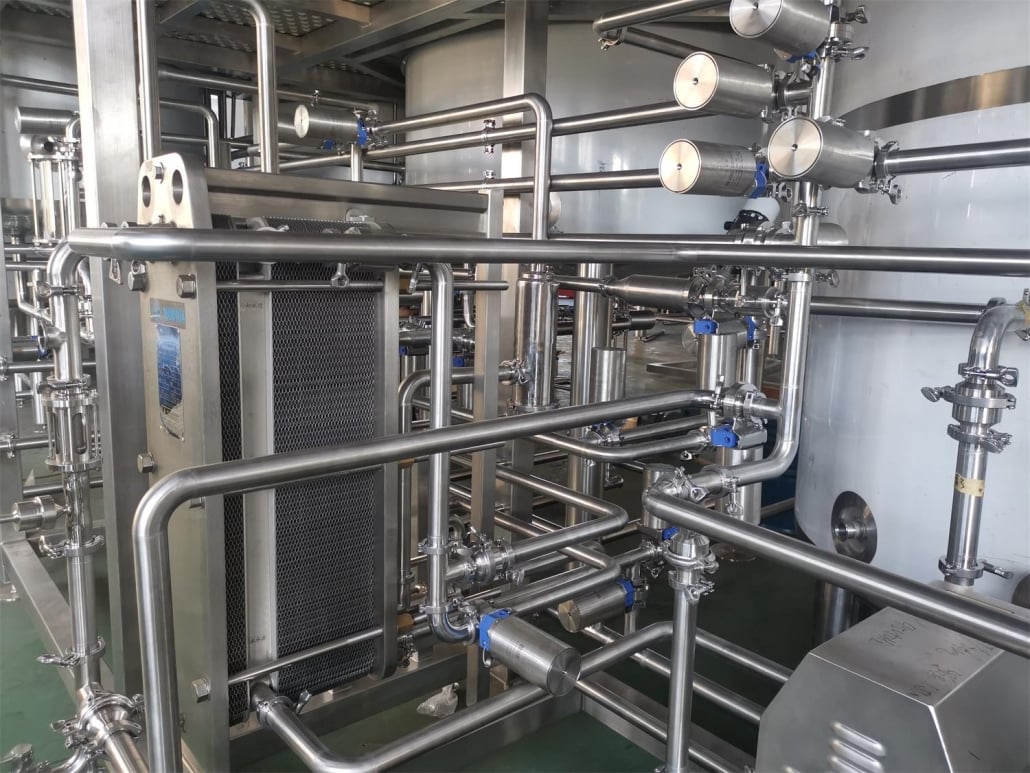
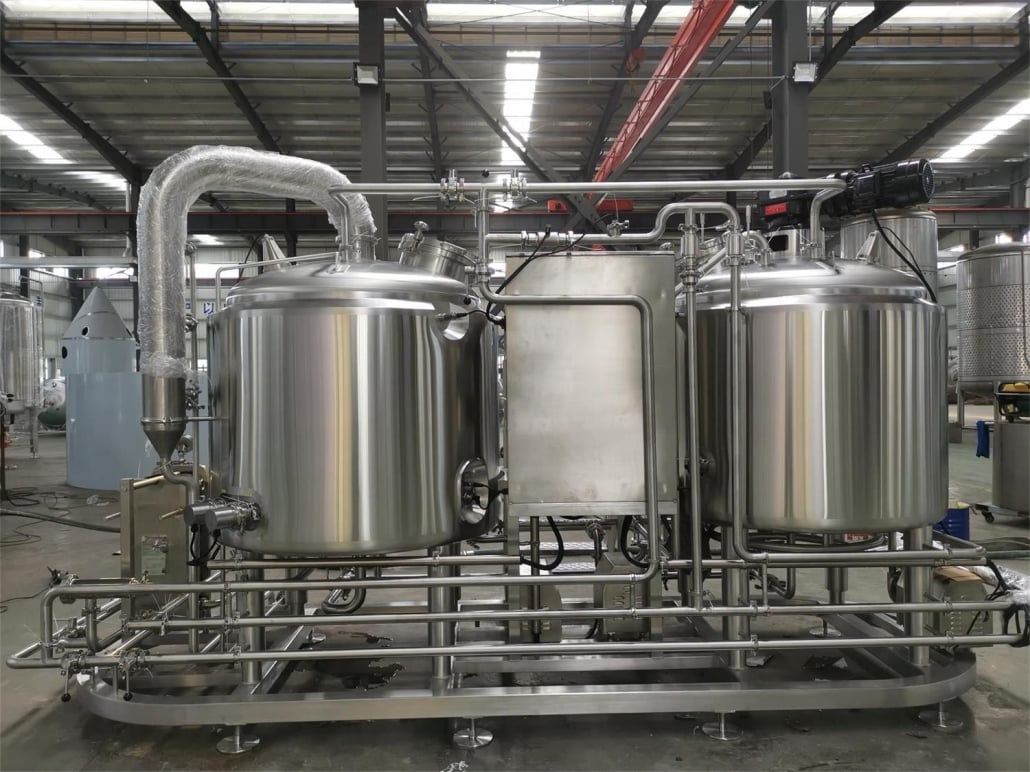
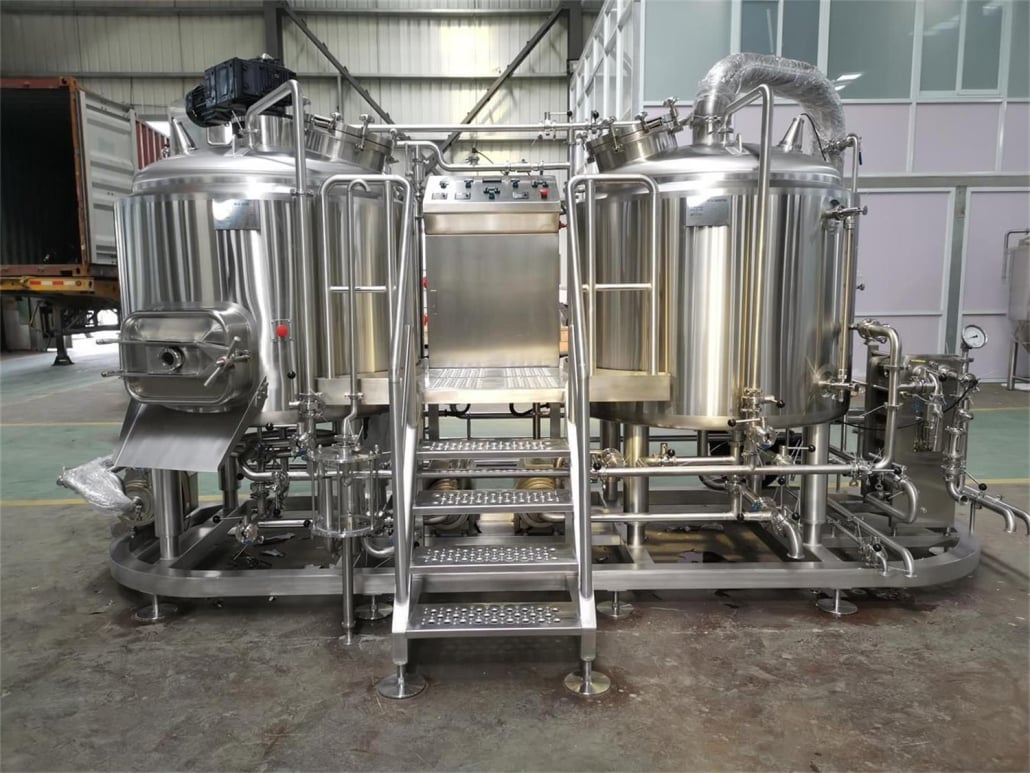
Equipment for Microbrewery Setup
The right equipment is essential for consistent quality and efficiency. Here’s what you’ll need:
- Brewhouse System: Includes mash tun, lauter tun, brew kettle, and whirlpool.
- Fermentation Tanks: For fermenting and conditioning beer.
- Cooling System: Glycol chillers for temperature control.
- Kegs and Bottling Equipment: For packaging your beer.
- Cleaning Systems: Essential for maintaining hygiene.
- Additional Tools: Grain mill, pumps, and filtration systems.
Investing in high-quality equipment ensures longevity and consistent production.
Space Requirements for Microbrewery Setup
Your space should accommodate production, storage, and customer interaction (if applicable). Here’s a guideline:
| Area | Requirement |
|---|---|
| Production Area | At least 2,000 square feet for brewing equipment and operations. |
| Storage | Space for raw materials and finished products. |
| Tasting Room/Bar | Optional, but 500-1,000 square feet can enhance customer engagement. |
| Utilities | Adequate water supply, drainage, and power connections. |
Ingredients and Supply Chain for Microbrewery Setup
The quality of your beer depends on your ingredients. Here’s what to consider:
- Malt: Choose between base malts and specialty malts for flavor variation.
- Hops: Provide bitterness, aroma, and flavor. Opt for fresh, high-quality hops.
- Yeast: Different strains yield varying beer styles.
- Water: The foundation of beer; consider its mineral composition.
Work with reliable suppliers to ensure a steady flow of fresh ingredients.
Production Process of Microbrewery Setup
Brewing beer involves several steps. Here’s an outline:
| Step | Description |
|---|---|
| Malting | Preparing malted grains by soaking, germinating, and drying. |
| Mashing | Mixing crushed malt with hot water to extract fermentable sugars. |
| Boiling | Adding hops and boiling the wort to develop flavors. |
| Fermentation | Introducing yeast to convert sugars into alcohol and carbon dioxide. |
| Conditioning | Maturing the beer to refine flavors. |
| Packaging | Filling kegs, bottles, or cans for distribution. |
Quality Control in Microbrewery Setup
Maintaining consistent quality is vital. Implement these measures:
- Lab Testing: Regularly test for alcohol content, pH levels, and microbial contamination.
- Tasting Panels: Conduct sensory evaluations to ensure flavor consistency.
- Sanitation: Clean all equipment thoroughly to prevent contamination.
- Documentation: Keep detailed records of each batch for traceability.

Brand Building and Marketing for Microbrewery Setup
Your brand is your brewery’s identity. Build it with care:
- Logo and Packaging: Eye-catching designs that reflect your brewery’s personality.
- Social Media: Engage with your audience through platforms like Instagram and Facebook.
- Events: Host tastings, tours, or beer festivals to connect with your community.
- Collaborations: Partner with local businesses or other breweries to expand your reach.
- Storytelling: Share your journey and passion for brewing to create an emotional connection.
FAQs
| Question | Answer |
|---|---|
| How much does it cost to start a microbrewery? | Costs range from $250,000 to $2 million depending on size and location. |
| How long does it take to set up a microbrewery? | Typically 6-12 months, including permits and construction. |
| Do I need prior brewing experience? | It helps, but hiring experienced staff can fill the gap. |
| What’s the profit margin for microbreweries? | Margins typically range from 20% to 40%, depending on scale and sales. |
| Can I sell food at my microbrewery? | Yes, but it may require additional permits. |
Additional FAQs to Help You Perform Microbrewery Setup
1) What production capacity should I target for year one, and how does that affect equipment sizing?
- Many new microbreweries plan 500–1,500 bbl/year. Back-calculate brewhouse size and cellar tanks (e.g., 7–15 bbl brewhouse with 2–4 FVs and 1–2 brites) based on weekly brew cadence, beer mix, and tank turns. Leave 20–30% headroom for growth.
2) How do I budget utilities for a microbrewery setup?
- As a rule of thumb, utilities (electric, gas/steam, water/sewer, CO2) often land at 5–10% of COGS for small breweries. Estimate glycol tonnage, boiler kPPH, water usage (3–7 L/L packaged with optimized CIP), and add 10–15% contingency.
3) What are the most critical permits beyond the TTB Brewer’s Notice?
- State alcohol license, local zoning/occupancy, health department, wastewater discharge/pretreatment, fire suppression review, and building/mechanical/electrical/plumbing (MEP) permits. Some cities require grease or solids interceptors for breweries.
4) How can I minimize oxygen pickup without expensive automation?
- Use closed transfers (CO2-purge tanks/lines), foam-on-beer for packaging, O2‑tight gaskets/valves, and verify with handheld DO. Keep packaged DO ≤100 ppb (≤50 ppb for hop-forward). Simple SOPs + checklists go a long way.
5) What’s a sensible staffing plan at launch?
- Typical lean team: head brewer (production/QA), assistant brewer/cellarperson, taproom manager, and owner handling admin/sales. Add packaging techs and sales reps as volume grows. Cross-train to cover vacations and peak weeks.
2025 Industry Trends: Performing a Microbrewery Setup
- Smaller, smarter footprints: Modular 2–4 vessel brewhouses, stackable unitanks, and skid-mounted utilities reduce build-outs and permitting timelines.
- Data-ready cellars: Affordable PLC/HMI with cloud logging, remote alarms, and basic LIMS exports adopted even at nano/micro scale.
- Sustainability as a sales lever: Heat recovery, efficient CIP, and can/lightweight packaging highlighted in brand storytelling and RFPs.
- Direct-to-consumer resilience: Taproom-first models paired with limited wholesale; flexible canning options (mobile or compact lines).
- Compliance focus: More cities enforcing wastewater pretreatment and CO2 safety, driving early engineering and budget allocation.
2025 Benchmarks for a Microbrewery Setup
| Category | Typical 2025 Value | Notes |
|---|---|---|
| Startup capex | $350k–$1.8M | Size, build-out, market |
| Brewhouse size | 7–15 bbl | With 2–4 FVs to start |
| Water:beer ratio | 3–5:1 optimized | With CIP and heat recovery |
| Packaged DO target | ≤100 ppb (≤50 ppb hop-forward) | Closed transfers required |
| Utility load (glycol) | 3–10 tons total | Climate/process dependent |
| Time to open | 8–14 months | Permits + construction |
| SKUs at launch | 3–6 core + seasonals | Keep draft/can mix simple |
| Gross margin (taproom) | 65–75% | Before overhead |
Sources: Brewers Association (BA) benchmarking 2024–2025; Master Brewers Association of the Americas (MBAA) Technical Quarterly; ASBC methods; ProBrewer practitioner surveys; municipal permitting guidance
Latest Research Cases
Case Study 1: Modular Build-Out Accelerates Opening (2025)
Background: A startup planned a 10 bbl brewhouse with limited capital and a tight landlord timeline.
Solution: Selected skid-mounted brewhouse/glycol, stackable 20 bbl unitanks, and pre-wired controls. Front-loaded wastewater design with sample port and flow-equalization tank to satisfy local pretreatment.
Results: Permitting approved 6 weeks faster; total build-out −12% cost vs. stick-built; first-year capacity 1,200 bbl with minimal downtime; wastewater surcharge avoided.
Case Study 2: Low-Oxygen SOPs Improve Shelf Life for Small Micro (2024)
Background: Taproom-focused micro with 7 bbl system saw aroma fade and occasional returns at 60–75 days.
Solution: Implemented closed transfers, CO2 line purges, O2‑tight elastomers, and handheld DO checks pre-pack. Trained team on foam-on-beer seam protocol and seam teardown basics.
Results: Packaged DO dropped to 35–80 ppb; returns decreased 28%; sensory shelf life extended beyond 90 days cold-chain; no new capital required beyond meters and gaskets.
Expert Opinions
- Dr. Tom Shellhammer, Professor of Fermentation Science, Oregon State University
“Early investment in oxygen control and temperature management delivers disproportionate gains in flavor stability and consumer satisfaction.” - Mary Pellettieri, Quality Consultant; author of Quality Management for Breweries
“Document your SOPs from day one—cleaning, transfers, packaging, and sensory. Consistency beats novelty in repeat sales.” - John Mallet, Brewing Operations Consultant; author of Malt: A Practical Guide
“Design your microbrewery setup for the work you’ll do daily: safe access, drainability, and cleanability often matter more than shiny extras.”
Practical Tools and Resources
- Brewers Association – Startup, QA, safety, and benchmarking: https://www.brewersassociation.org
- TTB – Brewer’s Notice and federal compliance: https://www.ttb.gov
- ASBC – Methods for DO, CO2, VDK, pH, and sensory: https://www.asbcnet.org
- MBAA – Technical papers/podcasts on brewhouse/cellar design and CIP: https://www.mbaa.com
- ProBrewer – Forums on permits, build-outs, equipment selection: https://www.probrewer.com
- OSHA/NIOSH CO2 Safety – Ventilation and monitoring guidance: https://www.osha.gov and https://www.cdc.gov/niosh
- Local municipality wastewater program – Pretreatment and surcharge rules (search “[city] industrial wastewater pretreatment”)
Sources and further reading:
- BA 2024–2025 benchmarking and draught/packaging quality guidance
- MBAA Technical Quarterly on oxygen management, jacket zoning, CIP validation
- ASBC methods for analytical control and shelf-life studies
- TTB application checklists and recordkeeping requirements
- Practitioner case threads on ProBrewer regarding modular installs and permitting timelines
Last updated: 2025-09-08
Changelog: Added 5 targeted FAQs; inserted a 2025 microbrewery setup benchmarks table; provided two case studies on modular build-outs and low-oxygen SOPs; added expert viewpoints; compiled practical tools/resources with authoritative links.
Next review date & triggers: 2026-01-15 or earlier if BA/TTB/ASBC/MBAA guidance updates, local wastewater/CO2 safety codes change, or new benchmarking data shifts startup sizing/cost assumptions.
Share this entry
Interested in learning more about Brewing Systems including additional details and pricing information? Please use the form below to contact us!
YOLONG BREWERY EQUIPMENT FAQS
- Commercial Brewery / Craft Brewery / Microbrewery / Nanobrewery
- What is The Difference Between Craft Beer and Industrial Beer?
- The Bespoke Differences In Custom Brewing Systems
- Everything You Need to Know About Kettle Souring
- How to Choose Brewing Equipment for Your business?
- How To Choose The-Best Partner To Build Your Commercial Microbrewing System?
- Two Detection Sensors That You Need To Use In Your Brewhouse System
- Remote Control Applications in Brewing Equipment/How does it work?
- How To Clean Your Brand New Brewery Tanks?

